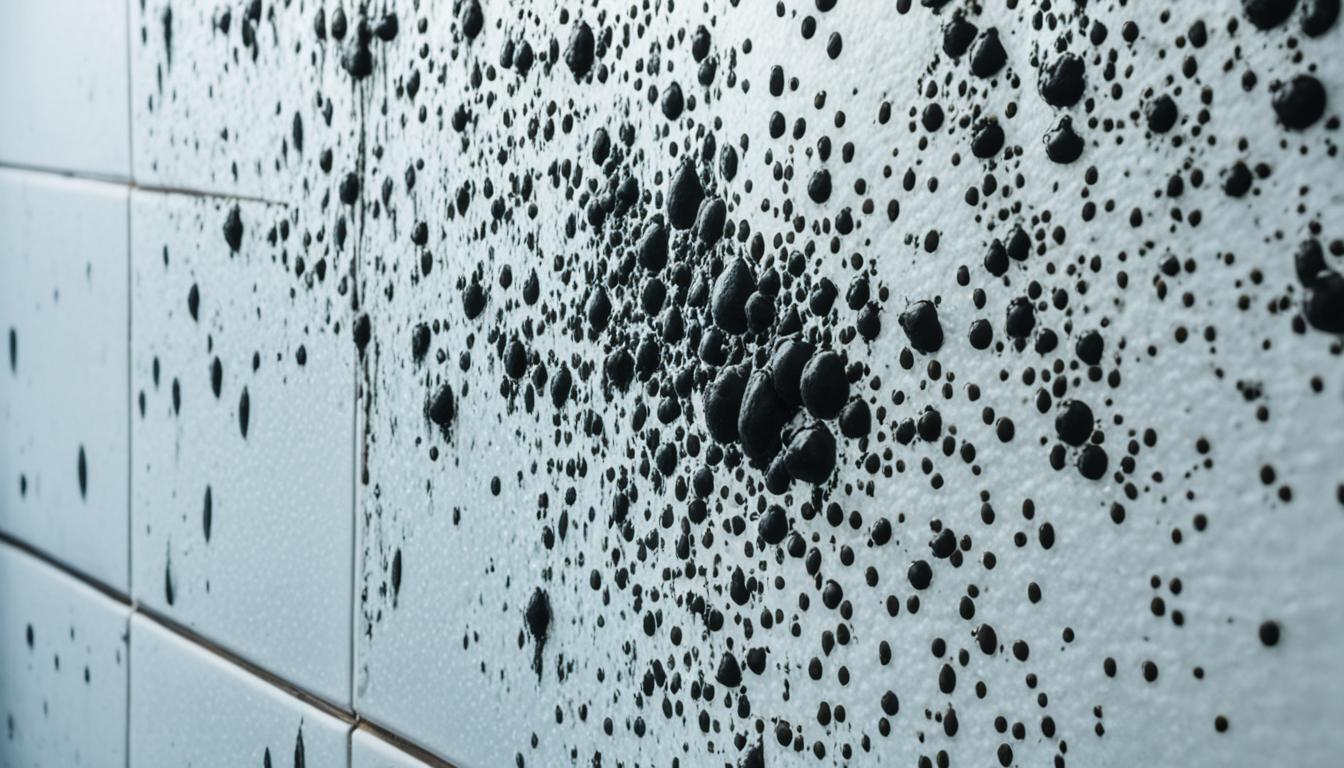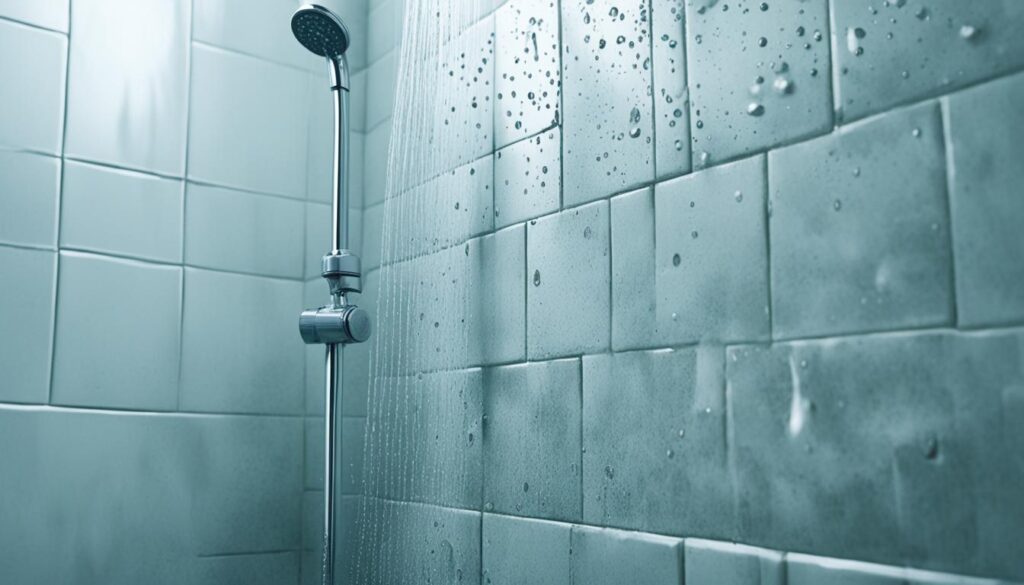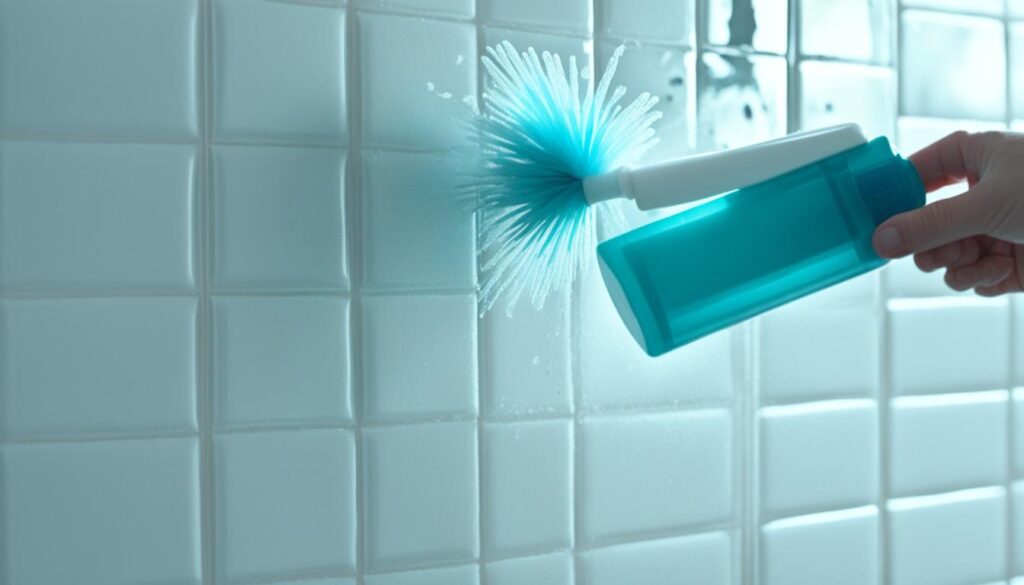
Everything You Should Know About black Mold in shower
Black mold in the shower is a common problem that many homeowners face. Not only is it unsightly, but it can also pose potential health risks to you and your family. In this article, we will delve into the causes of black mold growth, the health risks associated with exposure, and effective strategies for removing black mold from your shower.
Black mold thrives in damp and humid environments, making the shower an ideal breeding ground. The combination of moisture, poor ventilation, leaking pipes, high humidity, and lack of regular cleaning can create the perfect conditions for black mold to grow.
Exposure to black mold in the shower can lead to various health issues, especially for individuals with respiratory problems or compromised immune systems. Symptoms may include respiratory issues, allergic reactions, and skin irritation. It’s important to address the presence of black mold promptly to ensure the well-being of your household.
Fortunately, there are effective removal strategies for getting rid of black mold in your shower. You can opt for specialized cleaning products or try natural remedies that are safe and environmentally friendly. In more severe cases, professional mold remediation services may be necessary to fully eradicate the mold and prevent future growth.
Key Takeaways:
- Black mold in the shower is caused by moisture, poor ventilation, leaking pipes, high humidity, and lack of cleaning.
- Exposure to black mold in the shower can lead to respiratory issues, allergic reactions, and skin irritation.
- Effective removal strategies include using cleaning products, natural remedies, and professional mold remediation services.
- Regular cleaning and proper ventilation can help prevent black mold growth in the shower.
- Contact Fix Mold Miami at 305-465-6653 for a professional mold assessment and remediation services.
Causes of Black Mold in Shower
Black mold in the shower can be a persistent and frustrating problem. Understanding the causes of black mold growth is crucial in preventing its reoccurrence. Several factors contribute to the development of black mold in the shower:
- Moisture in the shower: Excessive moisture provides a breeding ground for black mold. Water splashes, steam, and wet surfaces create an ideal environment for mold growth.
- Poor ventilation: Insufficient airflow and ventilation in the shower area can trap moisture, preventing it from drying quickly. Without proper ventilation, the moist conditions promote mold growth.
- Leaking pipes: Leaks in the plumbing system within the shower area can introduce moisture into the walls or flooring. The damp environment resulting from leaking pipes facilitates black mold growth.
- High humidity: Areas with high humidity levels, such as bathrooms, are prone to mold growth. Humidity above 60% creates an optimal condition for mold to thrive.
- Lack of regular cleaning: Accumulation of dirt, soap scum, and other organic materials provides nutrients for mold spores to grow. Neglecting regular cleaning allows mold to proliferate.
Addressing these causes is essential to prevent black mold growth in the shower. By controlling moisture, improving ventilation, fixing leaks, maintaining lower humidity levels, and implementing consistent cleaning practices, you can effectively mitigate the risk of black mold formation.
Quotes:
“Moisture, poor ventilation, leaks, high humidity, and lack of regular cleaning are the main culprits behind black mold in the shower.” – Dr. Emily Johnson, Mold Remediation Expert
Tips to Prevent Black Mold Growth:
- Use exhaust fans or open windows to improve airflow and reduce moisture buildup in the shower.
- Fix any plumbing leaks promptly to prevent water damage and mold growth.
- Wipe down surfaces and dry them thoroughly after showering to minimize moisture accumulation.
- Regularly clean your shower area using mold-resistant cleaning products.
- Consider using a mildew-resistant shower curtain or liner to inhibit mold growth.
By addressing these causal factors and implementing preventive measures, you can keep your shower area clean, healthy, and free from the unwelcome presence of black mold.

Health Risks of Black Mold in Shower
Exposure to black mold in the shower can pose significant health risks, particularly for individuals with respiratory issues, allergies, or a compromised immune system. The presence of black mold can lead to various adverse reactions, including:
- Respiratory Issues: The inhalation of black mold spores can irritate the respiratory system and exacerbate existing respiratory conditions such as asthma or bronchitis. Individuals may experience coughing, wheezing, shortness of breath, and chest tightness.
- Allergic Reactions: Black mold is known to trigger allergic reactions in susceptible individuals. Symptoms may include nasal congestion, sneezing, itchy or watery eyes, and skin rashes.
- Skin Irritation: Direct contact with black mold or its spores can lead to skin irritation, redness, itching, and sometimes even dermatitis.
- Compromised Immune System: Those with weakened immune systems, such as individuals undergoing chemotherapy or living with HIV/AIDS, are more susceptible to the adverse effects of black mold. Exposure to black mold can further compromise their immune system, making them more vulnerable to infections and other illnesses.
It is crucial to prioritize the removal of black mold from your shower to mitigate the potential health risks associated with its presence. Failure to address black mold promptly can worsen existing respiratory conditions, trigger prolonged allergic reactions, and further compromise the immune system. Take the necessary precautions to protect yourself and your loved ones.
Mitigating Health Risks: Prevention and Removal
To safeguard your health and prevent the negative effects of black mold, it’s important to:
- Maintain proper ventilation in your bathroom to reduce humidity levels and discourage mold growth.
- Regularly clean and dry your shower area to prevent moisture buildup.
- Address any leaks or plumbing issues that contribute to excessive moisture in the shower.
- Consider using mold-resistant materials in your bathroom, such as mold-resistant drywall or tiles.
- Implement regular inspections and address any signs of mold growth promptly to prevent it from spreading.
- Seek professional help for extensive or persistent black mold infestations to ensure thorough removal and remediation.
By adopting these preventive measures and taking swift action against black mold in your shower, you can protect yourself and your loved ones from the potential health risks associated with its presence.
| Health Risks of Black Mold in Shower | Symptoms |
|---|---|
| Respiratory Issues | Coughing, wheezing, shortness of breath, chest tightness |
| Allergic Reactions | Nasal congestion, sneezing, itchy or watery eyes, skin rashes |
| Skin Irritation | Redness, itching, dermatitis |
| Compromised Immune System | Increased vulnerability to infections and illnesses |
Effective Removal Strategies for Black Mold in Shower
When it comes to dealing with black mold in your shower, it’s important to take swift and effective action. In this section, we will explore various strategies for safely removing black mold from your shower and preventing future growth.
Cleaning Products
One of the most common approaches to removing black mold is using cleaning products specifically designed for mold remediation. These products contain powerful ingredients that can effectively eliminate mold and mildew. Look for cleaning products that are specifically labeled for use in bathrooms and showers.
When using cleaning products, always follow the instructions carefully and ensure proper ventilation in the area. Wear protective gloves and a mask to minimize your exposure to mold spores.
Natural Remedies
If you prefer to use natural remedies, there are several options available that can help in the removal of black mold. Vinegar, hydrogen peroxide, and baking soda are common household items that can be effective in combating mold growth.
To use vinegar, simply fill a spray bottle with undiluted white vinegar and spray it directly onto the moldy areas. Let it sit for a few hours before scrubbing the mold away with a brush or sponge. Rinse the area thoroughly with water.
Hydrogen peroxide can be used by pouring it directly onto the moldy surface or applying it with a spray bottle. Let it sit for about 10 minutes, scrub, then rinse with water.
Baking soda mixed with water can create a paste that can be applied to the moldy areas. Let it dry, scrub the surface, and rinse with water.
Professional Mold Remediation
In cases of severe mold infestation or if the mold keeps recurring even after thorough cleaning, it may be necessary to seek professional mold remediation services. Professional mold remediation experts have the knowledge, experience, and specialized equipment to effectively eliminate black mold and prevent its regrowth.
They will assess the extent of the mold problem, identify the root causes, and carry out thorough remediation procedures. Professional mold remediation services not only ensure the complete removal of black mold but also provide valuable advice on preventing future mold growth.
Preventing Future Growth
To prevent future black mold growth in your shower, it’s important to address the underlying causes. Here are some tips for preventing future mold growth:
- Ensure proper ventilation by using exhaust fans or opening windows to reduce humidity levels in the bathroom.
- Fix any plumbing leaks promptly to prevent moisture buildup.
- Regularly clean and dry your shower area, paying close attention to corners, tile grout, and areas prone to moisture accumulation.
- Use mold-resistant shower curtains or liners.
- Consider applying a mold-resistant paint or sealant to the shower walls.
By following these strategies and taking proactive measures, you can effectively remove black mold from your shower and prevent its future growth.

| Cleaning Products | Natural Remedies | Professional Mold Remediation | Preventing Future Growth |
|---|---|---|---|
| – Mold-specific cleaning products – Follow instructions carefully – Wear protective gear |
– Vinegar – Hydrogen peroxide – Baking soda |
– Assess extent of mold problem – Identify root causes – Thorough remediation procedures |
– Ensure proper ventilation – Fix plumbing leaks promptly – Regular cleaning and drying – Use mold-resistant products |
Conclusion
In conclusion, addressing and understanding the presence of black mold in your shower is crucial for maintaining a safe and clean bathroom environment. By identifying the causes of black mold growth, being aware of the potential health risks associated with exposure, and implementing effective removal strategies, you can ensure the well-being of your household and prevent future black mold issues.
Remember to regularly clean your shower, ensure proper ventilation, fix any leaking pipes, and maintain optimal humidity levels to prevent black mold growth. Additionally, consider using effective cleaning products or natural remedies to remove black mold. For more severe cases, it is advisable to seek professional mold remediation services to ensure a thorough and safe removal process.
If you have concerns about black mold in your shower, it is recommended to contact Fix Mold Miami at 305-465-6653. They can assess the situation and provide expert guidance to address any black mold issues, ensuring a healthy and mold-free environment in your bathroom.




